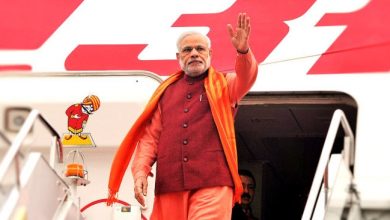Law Commission Mulls Constitutional Amendment for Simultaneous Polls in 2029

The Law Commission, led by Justice (retd) Ritu Raj Awasthi, is poised to recommend a groundbreaking constitutional amendment for ‘one nation, one election,’ adding a new chapter to the Constitution. The proposal envisions simultaneous polls for Lok Sabha, state assemblies, and local bodies across the country, aiming for implementation by mid-2029. The amendment seeks to synchronize the terms of legislative assemblies in three phases over the next five years, with the inaugural simultaneous polls anticipated in May-June 2029.
Key Recommendations
New Chapter on Simultaneous Elections: The proposed constitutional amendment will introduce a new chapter addressing issues related to “simultaneous election,” “sustainability of simultaneous elections,” and the implementation of a “common electoral roll” for various tiers of government, including Lok Sabha, state legislative assemblies, panchayats, and municipalities.
Overriding Power: The new chapter will possess the “power of non-extant” to override existing provisions in the Constitution related to the terms of assemblies, streamlining the process for synchronized elections.
Synchronization in Phases: The synchronization of terms for legislative assemblies will be carried out in three phases over a five-year period. The first phase may involve curtailing the terms of state assemblies by a few months, with adjustments based on circumstances like a government’s fall due to a vote of no confidence.
Unity Government Formula: In instances of a government collapse or a hung House, the Law Commission may recommend the formation of a “unity government” comprising representatives from various political parties. If unsuccessful, fresh elections may be suggested for the remainder of the assembly term.
Upcoming Challenges and Considerations: The Law Commission’s ambitious proposal aligns with efforts to transform the electoral landscape, ushering in a new era of synchronized polls. Challenges may arise in implementing the recommendations, and careful considerations will be required to navigate constitutional complexities and ensure the sustainability of the proposed model.
As India anticipates upcoming elections at various levels, the Law Commission’s endeavor to overhaul the electoral system through constitutional amendments reflects a significant step toward efficient governance and political reforms. The proposal aligns with the broader discourse on enhancing the electoral process, aiming to streamline and harmonize the democratic exercise across the nation.






